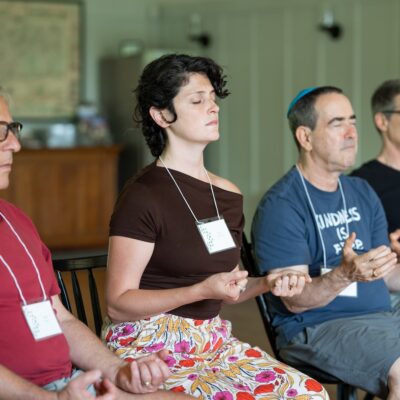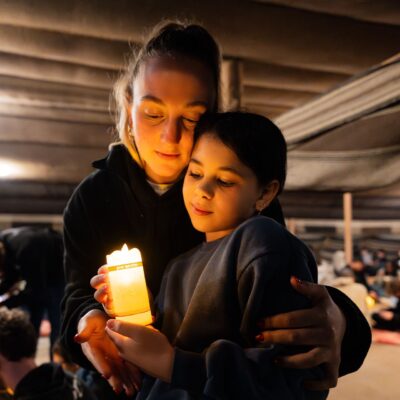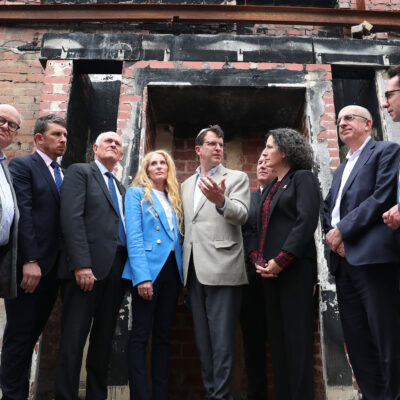Engaging with Empathy

[This essay is from The Peoplehood Papers, volume 17 – Engaging Millennials with Jewish Peoplehood What Does It Take? – published by the Center for Jewish Peoplehood Education.]
By Aaron Katler and Taylor Epstein
Robert Hunter, lyricist for the Grateful Dead, wrote in the 1970’s, “The wheel is turning and you can’t slow down, You can’t let go and you can’t hold on, You can’t go back and you can’t stand still, If the thunder don’t get you then the lightning will. Won’t you try just a little bit harder, couldn’t you try just a little bit more?”
When it comes to engaging the young adult community, many Jewish organizations find themselves in a bind not too dissimilar to Hunter’s. We’re trying harder, trying just a bit more, but the work of responding to the needs of an ever-evolving community leave many feeling left behind – like we’re on a turning wheel that won’t slow down. We’re steeped in the “challenge” narrative of young adult engagement: The challenge of cutting through today’s clutter and noise; the perceived entitlement of younger generations; the challenge of asking people who identify as global citizens to stand up for a more particularist identity, one that can feel asynchronous with the rest of their lives.
And … we need to subscribe to a different approach, one of immense opportunity: How might we capture the imagination of – and learn from – the modern Jewish customer? At UpStart, we have an idea of what that looks like from over 10 years of using empathy for our user to drive our designs. The opportunity of exploring this question, if embraced, enables the integration of people’s Jewish and secular worldviews to inform a passionate Jewish future.
Design for the User
The drive to engage young adults has fostered creative but often overlapping and redundant efforts that fail to speak to the true needs and desires of our community members. To truly appeal to young adults, and increasingly all ages, we need to partner with the consumers before we take our ideas to market. Embracing the DIY and collaborative culture that animates millennials, we can empower institutions with the process of human-centered design, how to co-create a new or adapted initiative. The beauty of the process is in the results – a product or service that the target user had self-identified wanting to consume. As part of this collaborative culture, institutions, funders, and producers must: Validate the ideas of young adults and recognize new ways of designing solutions to their problems; Help translate their questioning into agency; Foster innovation by bridging the gap between “those who create” and “those who participate.”
Let Go of the Ownership Mentality
We live in an increasingly ownerless society. From Burning Man to Uber and iTunes, “renting” experiences, products, and services is the societal norm – people jump in and out of product relationships according to their needs. Research shows that our brains’ understanding of belonging is literally being rewired, making it that much more difficult to navigate between the world of borrowing and renting, to one where you need to commit or “belong” to a communal institution let alone the greater community. It’s time for a radical shift in the way we approach the definition of belonging. It’s no longer about collecting and owning people’s affinities. It’s no longer about being a “member,” but being a “co-designer.”
We rely on and expect the current young adult consumer of Jewish life to carry on the values of Jewish Peoplehood. In order to do so, we are collectively responsible to adapt our ways of defining, delivering, and living those values. This consumer is more discerning, and it does a great a disservice to force their ideals into our construct. Rather, how might we take take their worldview, and use it to enhance how Jewish values are experienced? We need to do a better job of seeing the individual as a person with value to add to our Peoplehood, not the other way around.
Aaron Katler is the CEO at UpStart. Taylor Epstein is the Director of Design Strategy at UpStart. Based in San Francisco, UpStart partners with innovators to redesign the experience and expression of Jewish life.

 Add EJP on Google
Add EJP on Google










